Citizen intelligence
In the information age, the definition of a smart city is one in which people, services and resources are connected to offer, from the integration of public and private initiative, the conditions for the quality of life and the business development.
April - June| 2017“We will work with electronic resources to improve the people’s lives. The idea is to transform anachronistic services into new services; we have a 19th century State and a population with 21st century demands.” With these words, the municipal secretary for Innovation and Technology of São Paulo, Daniel Annenberg, announced his intention to accelerate the process of transforming capital into a smart city. The Secretariat, newly created by Mayor João Doria, was born with the mission of integrating and digitalizing the various bodies of São Paulo’s public administration and building new forms of collaboration between the Municipality and other sectors of society, to increase the “intelligence” of the largest Brazilian metropolis. “We want to reconcile government, private sector and universities’ actions, thinking about solutions to real demands. A smart city requires a smart government,” said Annenberg.
The smart city concept has been debated globally since the beginning of the 2000s. In general, it is a model of urbanization and public management that employs the latest advances in technology to make cities more efficient and secure. The transformation of a traditional city into a smart city involves the extensive use of digital communication and information systems on the part of the municipalities and their administrative bodies. Applied to the planning and coordination of schools, transport systems, hospitals, electrical networks and telephony, water supplies and other services, these systems increase the efficiency of these resources to the population. With the spread of embedded devices through the Internet of Things (IoT), the public administration can collect data provided by citizens and use this information to improve the provision of services – and also improve its communication with the community.
All these changes are not news in developed economies. An annual survey conducted by the Institute of Company Higher Studies (IESE, of Spain) analyzes the degree of “intelligence” of 181 cities in 80 countries, focusing on aspects that include governance, urban planning, economic activity, social cohesion and, of course, technology. The most recent ranking of 2016, brings nine European cities and nine others from North America among the 25 higher ranked cities.
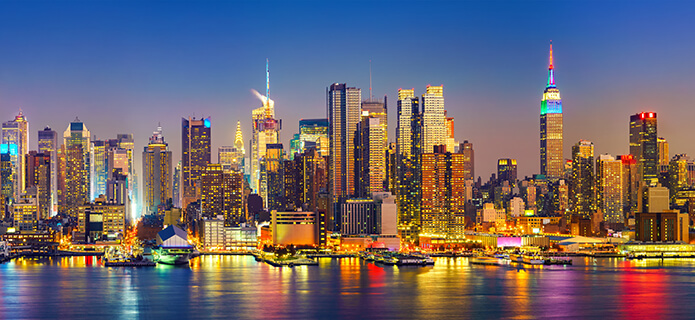
1. New York (United States)
It stands out for its high rates of economic activity, concentrating the headquarters of several global companies
It stands out for its high rates of economic activity, concentrating the headquarters of several global companies
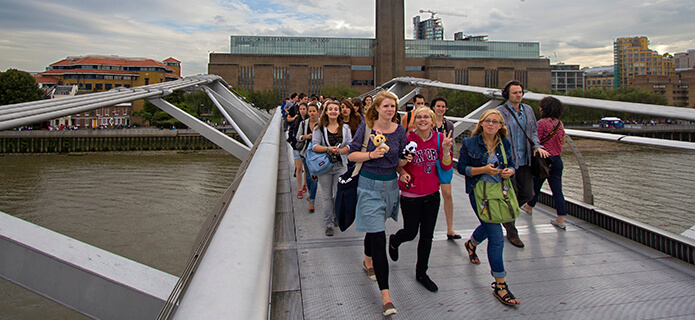
2. London (United Kingdom)
In the capital of England, the highlight is the high degree of educational development of its population
In the capital of England, the highlight is the high degree of educational development of its population

3. Paris (France)
Among the cities of the IESE ranking, it is the city that most attracts tourists from all over the world
Among the cities of the IESE ranking, it is the city that most attracts tourists from all over the world

4. San Francisco (United States)
Its strengths are the investment in human capital and its ability to attract and generate business
Its strengths are the investment in human capital and its ability to attract and generate business

5. Boston (United States)
The city in the state of Massachusetts shines in terms of governance and public administration
The city in the state of Massachusetts shines in terms of governance and public administration
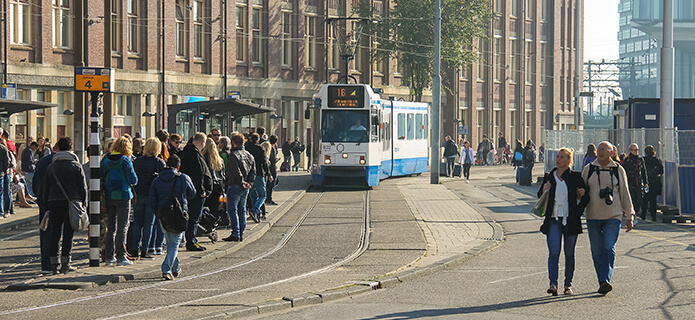
6. Amsterdam (Netherlands)
The highlights are urban planning and the ability to attract workers from other countries
The highlights are urban planning and the ability to attract workers from other countries

7. Chicago (United States)
As in other U.S. cities in the ranking, its flagship is the economic activity
As in other U.S. cities in the ranking, its flagship is the economic activity

8. Seoul (South Korea)
High level of social cohesion and advanced technology infrastructure are the main points of its "intelligence"
High level of social cohesion and advanced technology infrastructure are the main points of its "intelligence"
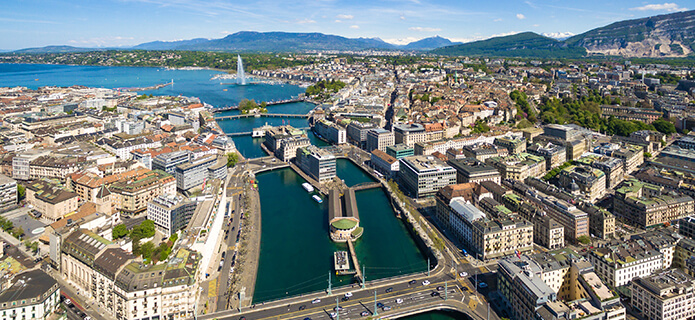
9. Geneva (Switzerland)
The Swiss city earns high scores in public management and environmental investments
The Swiss city earns high scores in public management and environmental investments
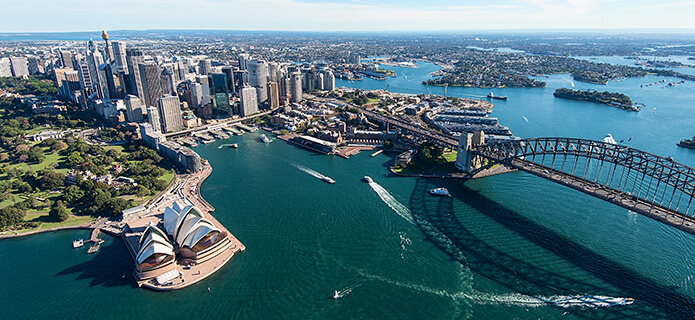
10. Sydney (Australia)
Cutting-edge technology and urban spaces planning have led the Oceania's city to the top 10 of the ranking
Cutting-edge technology and urban spaces planning have led the Oceania's city to the top 10 of the ranking
Source: IESE Cities in Motion (2016)
Brazil has seen three of its representatives in the IESE ranking drop positions in the research: São Paulo, Rio de Janeiro and Curitiba have lost between 16 to 26 positions each. Iara Pasian, Deloitte lead partner for Infrastructure and Public Sector, recognizes that the idea of smart cities is still in a “embryonic stage” in the country. “We are distant from the complete concept. The construction of a smart city involves a type of technology infrastructure that the Brazilian cities are not yet capable to expand in large scale”, ponders the Deloitte’s partner. For Iara, before thinking in the transformation into a smart city, our municipalities should greatly improve the quality of public services, in general.
"To implement a smart management, the public service needs to achieve a level of excellence in service on issues such as transport, energy, sanitation and safety."
Iara Pasian, Deloitte lead partner for Infrastructure and Public Sector
To leverage the development of smart cities in Brazil, one path is the partnership (of efforts and investments) between the public and the private initiative, says Iara. São Paulo’s management secretary, Daniel Annenberg, stated that “the more the city opens, more are the possibilities for new projects, new startups and innovative services”. This is one of the reasons for the city to lead the Connected Smart Cities (2016) ranking, compiled by the Urban Systems consulting firm and that focuses only on Brazilian municipalities. The survey considered not only the degree of digitalization of the municipal infrastructure, but also social, economic, environmental and human development indicators.

“Private companies can help in the collaborative solutions development”, recalls Urban Systems’ CEO, Thomaz Assumpção. “Innovation departments think all the time in market solutions which can also be adapted to the public management model. Even with the consideration needed from the private initiative, its positive impact to society usually pays off,” says the consultant, who sees promising possibilities in sectors such as health, education and mobility. “With the use of resources such as big data and IoT systems, information about the origin and destination of public transportation users, consumption profiles and health habits become part of urban planning,” says Assumpção.

As for the gaps between the development of smart cities in Brazil and in other metropolises in the world, the specialist recalls: “Brazil is a continental country, very extensive. The advances in concepts and implementation of actions for smart cities are isolated occurrences in some cities, while other smaller countries have a greater scope in their actions”. A good example is in neighboring Argentina. The capital Buenos Aires has been singled out in recent years as a progress paradigm in the incorporation of digital resources in urban management, with smart systems applied to areas such as electricity, communications and mobility. The application of big data in the planning of public transportation and traffic control is one example, as well as the use of analytics to trace the profile of tourists who visit the city and the offer of various types of public services via mobile device applications.

“The technology offers better ways to connect with each other, to provide better services and to manage resources more efficiently. Increasingly, private sector companies begin to follow this line of work and public policies must go through the same direction,” says Andy Freire, Minister of Modernization, Innovation and Technology of Buenos Aires. The idea that a smart city is one that is open to innovative partnerships between the government and the business community was also embraced by the Argentinian city. “It is imperative that we make the link between companies, non-governmental organizations, investors and business accelerators,” says Freire. The effort includes the stimulus to research centers in technology, such as the Metropolitan Center of Design, and contests of support to development of startups based on digital innovation.
Back to Brazil, the more concrete actions can be found in the electricity sector, with the implementation of Public Private Partnerships (PPPs) that will occur in most federal capitals. The incorporation of digital resources into the electricity transmission and distribution enables the creation of so-called smart grids: “intelligent” electrical networks that work with much more efficiency and reliability. These networks are the backbone of a technological infrastructure – of the kind that is lacking in our cities. “The industry of components and electronic equipment for smart grids is very mature and ready to seize the opportunities that arise. Sectors such as sanitation and transportation are still a little behind,” notes Iara Pasian, from Deloitte.
The positive experiences of these cities indicate that the connection between the public and private sectors for the improvement of infrastructure is a path for the urban space to gain in intelligence and improve the lives of its citizens.
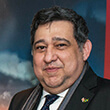
The adoption of smart grids and PPPs in the energy services as a spearhead in the process was embraced by the Federal Government. The change is headed by the Ministry of Science, Technology, Innovation and Communications (MCTIC) and has the support of the National Bank for Economic and Social Development (BNDES), with credit lines for energy efficiency projects. “At MCTIC, we gather the main points for the development and regulation of these technologies, which is fundamental to direct investments to this sector,” explained Eduardo Soriano, general coordinator of the Ministry’s Sectorial Technologies. “It is a long-term work, in which the regulation, technological development and the industrial question go together. MCTIC has an energy sector and also encompasses telecommunications that are applied to the smart networks. We are in a position to leverage innovation within this topic in Brazil.”
The promise of smart cities – Deloitte and AT&T
In the 2017 edition of the World Economic Forum, Deloitte and AT&T were co-sponsors of the panel Smart Cities – Smart Nations. Check through the link below an infographic that allows you to better understand the future of smart cities.

